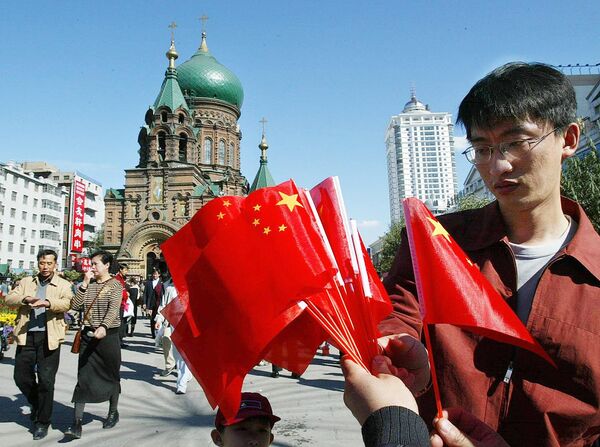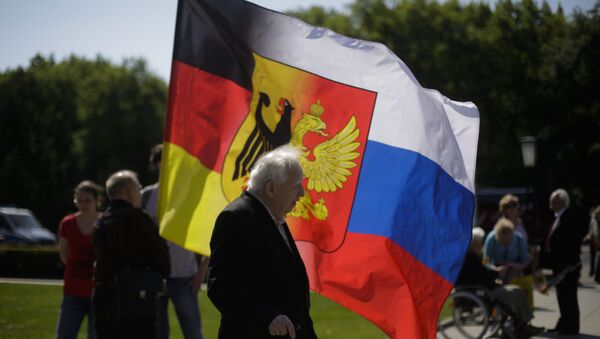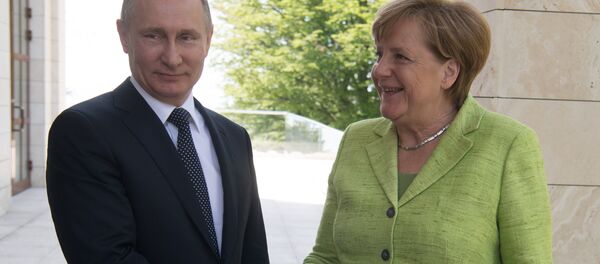According to figures from Russia's Federal Customs Service, the turnover of trade between Russia and Germany in January and February increased to 6.7 billion euros ($7.3 billion), an increase of 43 percent in comparison with the same period the previous year.
During this two-month period, Russian exports to Germany increased by 55.1 percent to $4.6 billion (4.2 billion) and German exports to Russia increased by 26.2 percent to $2.7 billion (2.5 billion euros).
Statistics from the German Federal Statistical Office (Destatis) differed from the Russian statistics but showed an equally positive trend. According to Destatis, the total trade turnover was 9.5 billion euros ($10.4 billion), with Germany exporting 4 billion euros ($4.3 billion) of goods to Russia (a 36 percent increase) and Russia exporting 5.5 billion euros (6.1 billion) to Germany (a 38 percent increase).
"The latest figures concur with the German economy's impression on the ground, that the situation is improving," Matthias Schepp, Chairman of the Russian-German Chamber of Commerce, said.
According to a survey of German enterprises in February, over two-thirds were optimistic about the prospects for economic development in Russia in 2017.
"For the vast majority of German companies, who weathered the downturn and stayed in the country, their faith in a market recovery is now going to pay off," the trade organization's deputy chairman Klaus Schaefer said.
Despite their optimism about economic recovery, German firms were less optimistic about the possibility of anti-Russian sanctions being lifted this year.
While 91 percent of respondents to the survey said they would like to see sanctions against Russian individuals and businesses lifted, just 29 percent foresee that happening over the next year.
Over half of those questioned were bullish about Germany's place in the Russian market, despite the impact of Russian counter-sanctions and competition from China.
The majority, 59 percent, of respondents said that the EU will remain one of Russia's most important trading partners, along with China.

Chinese exports to Russia increased by 22.4 percent to $18.1 billion while Russian exports to China increased by 36.1 percent to $9.66 billion, RIA Novosti reported.
In 2016, trade turnover between China and Russia reached $69.5 billion, an annualized increase of 2.2 percent.
Last October, Director-General of the Chinese Foreign Ministry's Department of Europe and Central Asia Gui Congyou told Lenta.ru that the two countries can achieve the target by opening their markets and increasing agricultural imports.
Congyou said that China is interested in increasing its imports of Russian agricultural products such as meat and wheat, and that Russian could buy more fruit and vegetables from China.
"Our countries border each other, it is illogical and unprofitable for us to buy these goods from countries that are far away from us," Congyou said.
Never miss a story again — sign up to our Telegram channel and we'll keep you up to speed!




